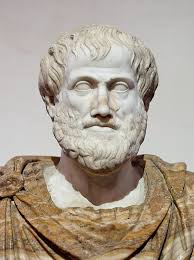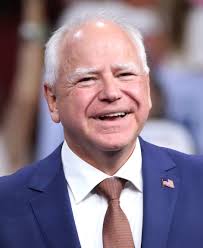About Aristotle and Tim Walz
- Carolina Oliviero
- Aug 27, 2024
- 4 min read
Aristotle defines a virtuous leader as one who practices moderation and seeks the good of the community above personal gain. Over the past years, we haven’t seen too many of those leaders at the top, but Vice President Candidate Tim Walz might bring back virtuous leadership into world politics.
Most people in democracies wish for leaders who make decisions that serve society. Many people don’t want a politician who primarily acts on behalf of him- or herself but prefer a politician who prioritizes the population’s well-being. Unfortunately, virtu is not a necessity for top political positions. As many world leaders illustrate, top positions often go to a specific clientele, an elite with the privilege to detach themselves from the rest of society due to their financial means. Thus, a person like former President Donald Trump has almost zero personal experiences that overlap with those of the average society. It is technically impossible for him to make decisions in the interests of ordinary people since he cannot relate to them from personal experience. With regard to Aristotle’s philosophy, this lack of practical experience is eye-catching: Aristotle defines virtues as habits developed through practice, which are essential for achieving eudaimonia (flourishing or well-being). As the current state of many societies proves, the lack of practical experiences in society and, thus, the lack of virtue is one reason that prevents eudaimonia.
Coach Walz – Practitioner from the Beginning
Tim Walz, Kamala Harris’ candidate for Vice President, is the humanization of Aristotle’s virtue through practice. Popularly, he is called “Coach Walls,” indicating his practical experiences in leadership positions close to the community.
His resume is pretty much that of an American upper-middle-class man born in the 1960s. He was born into a middle-class family without excessive financial resources or an advantageous network on which he could base an elite career. His parents worked as school administrators and were active in the community. Maybe shaped by these experiences, he dedicated his whole life to public service and, thus, never built an extraordinary fortune. Recent financial disclosures show that his primary assets include his home and his retirement savings – an economic situation that is very average and achievable with hard and consistent work for a middle-class American.
Another point that Aristotle points out for virtuous leaders is making decisions that reflect wisdom (phronesis), courage, justice, and temperance. Also, in this regard, Walz checks the box for a virtuous leader. During his political career, he was sometimes funded by some lobby organizations, like the NRA (this funding is legal and transparent like most politicians receive). Years later, when he corrected his political position towards the NRA’s interests, he decided to give back the money in the form of donations to anti-gun rights organizations because he did not want to be affiliated with the NRA and its interests any longer. This is astonishing for two reasons: Firstly, he changed his political position towards gun laws around 180 degrees after several shocking school shootings. He gained more knowledge, re-assessed the new information, and acted on it. He was courageous and wise enough to publicly state his change of position and created a little more justice with donations to the organizations that opposed the lobby groups’ interests. Secondly, this is a very bold move, especially in US politics, where political success is pretty much determined by the money your campaign receives from lobby groups. Especially the NRA is a meaningful donor in the political arena, and refusing its donations can compare to financial suicide for the political campaign. Thus, down-turning money is a brave move, prioritizing the “right thing to do” over personal, political success.
Also, he did not make politics for a specific clientele but for the population as a whole. He advocates for public education, better and inclusive school lunches, and universal healthcare. As a man who grew up in an average American household, he was confronted with these topics personally. He had first-hand experience with the situation in public schools, for instance. As Aristotle says, virtuous leaders must possess phronesis (practical wisdom) to navigate complex moral situations effectively. And this is what we can see in Walz’s political career: political decisions guided by his practical wisdom.
Meaning for US Politics
Does a potential victory of Harris-Walz and thus Walz as one of the most influential politicians in world politics fundamentally change the political environment in the US and beyond? Not necessarily. What it offers, though, is the opportunity for average citizens to feel seen and genuinely represented in the White House. Not by somebody who claims to be like them while committing high-level tax fraud with amounts of money the average American won’t be able to earn over the time of their entire lifespan. But somebody who can relate to the average American struggles in life and who makes conscious and brave decisions based on these experiences. A virtuous leader like Tim Walz might be able to incentivize citizens to reevaluate their assessment of “the political elite” and regain an appreciation for politicians and their jobs.



Commenti